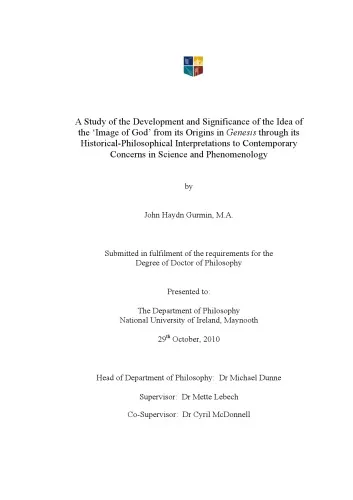Kuhn's Intellectual Path: Charting the Structure of Scientific Revolutions
4.5
Reviews from our users

You Can Ask your questions from this book's AI after Login
Each download or ask from book AI costs 2 points. To earn more free points, please visit the Points Guide Page and complete some valuable actions.Related Refrences:
Introduction to 'Kuhn's Intellectual Path: Charting the Structure of Scientific Revolutions'
The exploration of scientific progress and the nature of revolutions in the sciences is a captivating subject that Thomas Kuhn vividly portrayed in his landmark work, "The Structure of Scientific Revolutions." In "Kuhn's Intellectual Path: Charting the Structure of Scientific Revolutions," we delve deeper into Kuhn's profound ideas, drawing connections between his life's work and the broader philosophical debates of his time. This examination not only highlights the impact of Kuhn’s thesis but also traces the intricate journey of his intellectual development. This book brings forth a detailed analysis of Kuhn's revolutionary ideas, their reception, and their enduring influence.
Detailed Summary of the Book
Kuhn’s concept of scientific revolutions suggests that science does not progress linearly through the mere accumulation of knowledge, but rather through paradigm shifts—fundamental changes in the basic concepts and experimental practices of a scientific discipline. This book traces Kuhn's intellectual development leading up to his groundbreaking work and examines the evolution of these ideas over time. It dissects Kuhn's argument that scientific fields undergo periodic "paradigm shifts" rather than merely evolving through steady, predictable progress. "Kuhn's Intellectual Path" also contextualizes Kuhn’s ideas within the broader landscape of 20th-century philosophy and science.
Through a meticulous analysis of Kuhn's influences and contemporaries, this book brings to light the philosophical debates and the academic climate that shaped his thought process. The chronological narrative explores how Kuhn’s early education in physics and subsequent study in the history of science contributed to his proposal of paradigm shifts as central to scientific progress. This narrative reveals the internal struggles and external pressures that Kuhn faced while developing his ideas.
Key Takeaways
- The concept of paradigm shifts revolutionized the understanding of scientific progress, emphasizing the non-linear and disruptive nature of scientific development.
- Kuhn's work heralded a shift from a cumulative view of science to one that embraces revolutions and episodic change.
- The book highlights how paradigms guide research practices, creating both opportunities and limitations within scientific communities.
- Kuhn’s ideas have influenced not just the philosophy of science but also extended into fields like sociology, economics, and political science.
Famous Quotes from the Book
"The road to a firm understanding of concepts like paradigm shifts and scientific revolutions reveals much about the human endeavor to comprehend an ever-complex world."
"Kuhn’s legacy is a testament not just to his profound insights, but also to his ability to provoke thought and stimulate debate across disciplines."
Why This Book Matters
"Kuhn's Intellectual Path" is more than a mere exploration of Thomas Kuhn's ideas; it serves as a crucial resource for understanding the dynamics of scientific progress. The book underscores Kuhn’s enduring influence on both academic and popular discourses about how science operates and evolves. It offers readers insights into the processes that underpin scientific discoveries and shifts, which remain relevant in today's rapidly changing scientific landscapes. By revisiting the key moments in Kuhn's intellectual journey and their impact on the philosophy of science, this book provides valuable context and understanding for scholars, students, and anyone interested in the evolution of scientific thought.
As Kuhn’s ideas continue to inspire and challenge thinkers across various fields, "Kuhn's Intellectual Path" opens up new avenues for reflecting on the legacy of scientific innovation and revolution. In doing so, it invites readers to consider how paradigm shifts shape not just the world of science but also the framework through which reality is understood and engaged.
Free Direct Download
You Can Download this book after Login
Accessing books through legal platforms and public libraries not only supports the rights of authors and publishers but also contributes to the sustainability of reading culture. Before downloading, please take a moment to consider these options.
Find this book on other platforms:
WorldCat helps you find books in libraries worldwide.
See ratings, reviews, and discussions on Goodreads.
Find and buy rare or used books on AbeBooks.
1302
بازدید4.5
امتیاز0
نظر98%
رضایتReviews:
4.5
Based on 0 users review
Questions & Answers
Ask questions about this book or help others by answering
No questions yet. Be the first to ask!














